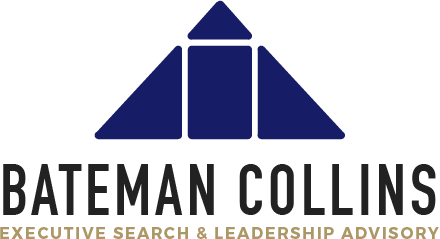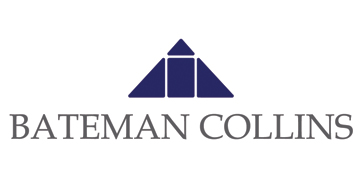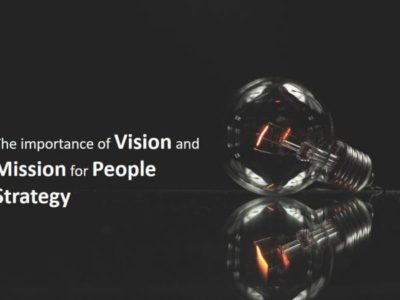There were two important events last week which concentrated my attention on neurodiversity. Firstly, a close family member who has been exhibiting strong indications of neurodiversity for some time caused me to reflect on both their strengths and the challenges that this may pose for them in the future. They are exceptionally bright and show signs of mathematical brilliance, but they also have an obvious discomfort in large social noisy environments.
Secondly, I heard Jeremy Fleming, Director of the Government Communications Headquarters (GCHQ) highlight the benefits of hiring neurodiverse talent at an event run by Made By Dyslexia. During his speech he highlighted the importance of hiring diverse talent, saying that GCHQ are ‘specifically looking for people with that sort of neural difference… We are doing everything we can to attract the right people – including dyslexics – to make sure they can fulfil their potential,’ by attracting ‘the country’s best mathematicians, some of the most talented engineers and hopefully some of the best analysts.’
He went on to highlight the benefits of hiring neurodiverse talent for the organisation. ‘We are an organisation of 10,000 people. Nothing happens unless we work in teams. Some of the characteristics in the neuro diverse and dyslexic [community] are really at the core of how we team work.’
Defining Neurodiversity
Neurodiversity refers to the variation and differences in neurological structure and function that exist among human beings, especially when viewed as being normal and natural rather than pathological. This variation in neurocognitive functioning relates to sociability, learning, attention, mood and other mental functions and includes neurocognitive differences such as autism, attention deficit hyperactivity disorder (ADHD), dyslexia, dyspraxia, dyscalculia, Tourette’s syndrome, anxiety, obsessive-compulsive disorder, depression, intellectual disability and schizophrenia, as well as ‘normal’ neurocognitive functioning, or neurotypicality.
Neurodivergent individuals are those whose brain functions differ from those who are neurologically typical, or neurotypical.
Neurominorities represent a significant percentage of the overall population, close to 10%. This means that one in ten job applicants, customers and colleagues are neurodivergent. We know that Dyslexia affects one in 10 people and recent research shows that one in 68 young people are now diagnosed autistic, although it is also recognised that many will be living without a diagnosis. The ratio of male-to-female is 4:1, although there are likely to be more undiagnosed women than men.
Research undertaken by Made By Dyslexia shows that only 3% of the public believe that dyslexia is a positive trait and 73% of dyslexic people hide it from their employers.
Only 16% of autistic adults in the UK are in full-time employment, according to the National Autistic Society, however their research also shows that a significant majority (77%) of unemployed autistic people say they want to work.
Benefits of hiring neurodiverse talent
Neurodiversity is becoming increasingly important for several reasons. Firstly, society at large is better informed and the business case for diversity is now recognised.
The Neurodiverse are a significant demographic with 10% of the population, which firms cannot ignore as either customer groups or colleagues. Customers are more discerning in selecting brands that align with their values and customer trust is an important measure, often reflecting profitability. As we have highlighted, Millennials and post Millennials or (Generation Z) are informed and discerning when selecting employers, products and services.
Probably most importantly, the competition for talent in 2019 remains fierce, driven by low unemployment and skills shortages in many markets. The ‘war on talent’ is adding pressure on firms, senior leaders and HR professionals to identify new uncharted talent pools, and neurodiverse communities should be high on this list.
Furthermore, by employing neurodiverse talent, firms are better positioned to understand diverse customers and other vulnerable customers groups. When many financial services and gambling firms under increasing pressure to appropriately respond to vulnerable customers, employing neurodiverse talent can aid that understanding and communication.
As we have written in previous articles, the importance of ‘diversity of thought’ helps firms bring together colleagues with different backgrounds, perspectives and experiences to create more creative solutions for a diverse community. The benefits of challenging established ways of thinking and bringing a different perspective to the organisation is critical.
Neurodiversity often brings special abilities, significant advantages and strengths. People with autism can possess strengths in mathematics, memory and pattern recognition whilst people with dyslexia often have increased aptitude for creative and lateral thinking and are good at coming up with ideas for problem-solving and planning. Other advantages which have been highlighted include honesty, motivation and commitment. When these strengths can be channelled, neurodiverse talent can make a valuable contribution.
Hiring neurodiverse talent makes a great deal of sense today where the war on talent is strong and firms need to be hiring across the full spectrum of capabilities. Furthermore, with the increasing importance of mathematical skills and creative thinking, which are so critical for the rapid development of technology, software and cyber applications, never has the need to harness these skills been more important.
As the CIPD ‘Neurodiversity at Work’ highlights, whilst neurodiverse individuals may experience ‘individual challenges uncommon to neurotypicals – but they can also possess unique abilities akin to human ‘superpowers’ – abilities that can contribute to a competitive advantage when properly appreciated and leveraged by neurodiversity smart employers.’
Neurodiversity in Leadership
This awareness of the benefits of hiring neurodiverse talent have been strengthened by high profile leaders openly discussing their experiences. One of the most prevalent is Richard Branson who has talked about dropped out of school at 16 because his dyslexia was “treated as a handicap: my teachers thought I was lazy and dumb, and I couldn’t keep up or fit in.”
Branson’s openness is inspirational and helpful in increasing awareness of the benefits of neurodivergence, not just on helping firms realise the benefits of employing neurodiverse talent but also in highlighting the achievement and leadership potential of those with neurodivergence.
He has gone on to say ‘It is time we lost the stigma around dyslexia. It is not a disadvantage; it is merely a different way of thinking. Once freed from archaic schooling practices and preconceptions, my mind opened up. Out in the real world, my dyslexia became my massive advantage: it helped me to think creatively and laterally, and see solutions where others saw problems. If you have a learning disability, you become a very good delegator. Because you know what your weaknesses are and you know what your strengths are, and you make sure that you find great people to step in and deal with your weaknesses. And, whether you are dyslexic or not, I think delegation is such an important thing for a good leader to be good at doing. Too many leaders want to cling onto everything themselves and do everything themselves and never let go. Therefore, they never grow a group of companies like Virgin.’
Other famous business leaders with neurodivergence include Henry Ford and Steve Jobs, the founder of Jet Blue Airways David Neeleman, the IKEA founder Ingvar Kamprad, Dragons’ Den stars Duncan Bannatyne and Theo Paphitis. It is also widely believed that Amadeus Mozart, Albert Einstein, Andy Warhol, Thomas Jefferson, Emily Dickinson and Bernard Montgomery were likely to have been neurodivergent.
Neurodiversity in Industry
GCHQ is not the first organisation to actively and publicly announce the benefits they see in hiring neurodiverse talent. Many firms have been at the forefront of this drive over the last few years and these organisations have demonstrated early successes. Financial Services and Technology firms have been the most prevalent and include HSBC, Goldman Sachs, JP Morgan, SAP, DXC Technology, IBM and Microsoft.
JPMorgan reported that ‘after three to six months working in the Mortgage Banking Technology division, autistic workers were doing the work of people who took three years to ramp up – and were even 50 percent more productive.’
‘Many autistic people are simply brilliant people – highly educated, highly capable, detail-oriented, yet unemployed,’ says James Mahoney, Executive Director and Head of Autism at Work for JPMorgan Chase. ‘I would encourage anyone on the spectrum to embrace what makes them different and see it as their greatest strength,’ he said. ‘I firmly believe that companies could always benefit from having employees who see things in an unconventional way, which is something to remember any time an individual on the spectrum is seeking a job.’
Goldman Sachs launched a paid internship program for autistic candidates. This eight-week internship, aimed at individuals who have been identified as neurodiverse, includes those with autism, dyslexia, ADHD, developmental disorders and other mental health conditions.
Dane Holmes, Goldman Sachs Head of Human Capital Management said the high levels of unemployment among individuals on the autism spectrum is ‘a missed opportunity for employers and society, considering this highly intelligent and skilled talent pool embodies intense levels of concentration and dependability, and often higher retention rates than neurotypical people.’
HSBC have also targeted talent from neurodivergent groups. Birgit Neu, Global Head of Diversity and Inclusion, HSBC, said ‘Valuing neurodiversity is a vital part of building a successful business. Teams across HSBC, from technology to the trading floor, benefit greatly from the perspectives and expertise of people who think differently.’
Recruiting Diverse Talent
Recruiting neurodiverse talent requires a different approach as interviews can be challenging for people with neurodiversity. Standard application processes that don’t take into consideration diversity and specifically neurodiversity can also have pitfalls for neurodiverse talent.
There are a number of ways in which this can be rectified:
- Having an application process that caters for neurodivergent talent is critical. For instance, allowing candidates to apply on line with access to spelling and grammatical tools can help.
- When declaring neurodiversity or disability information, this is only accessible to Human Resources and not available to all line management.
- Providing candidates with extra time to complete tasks where they are dyslexic.
- Allowing interviews to be conducted by email or through an online application. This may help autistic or dyslexic candidates who are less able to perform in a face to face meeting.
- Providing candidates with support through the interview process and once they have been offered the role to ensure that the candidates could discuss their support needs and have appropriate support in place before they started their new role.
- Neurodiversity awareness within the workplace and providing training and guidance to work colleagues to ensure all staff understand the practicalities of interacting with neurodiverse colleagues.
- Providing access to ongoing support clearly helps with retention and with greater accountability taken by line management, including in areas such as assessing performance and providing support and feedback, neurodiverse colleagues will thrive.
Bateman Collins is helping firms shape their diversity strategy to transform their markets. For more information on diversity strategies, including neurodiversity, please contact Barney Collins on bcollins@batemancollins.com or 07584 575454.
Bateman Collins is a boutique Executive Search and Leadership Advisory Consultancy. We have an unparalleled track record, successfully introducing C-Suite and Board level executives, Senior Managers and Strategic Interim Professionals into multinational corporations, mid-cap and start-up firms.




